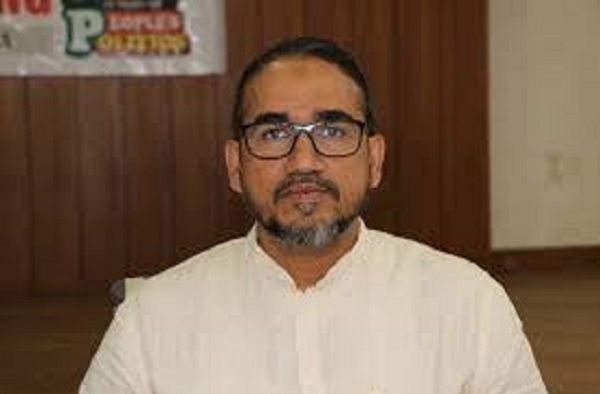
SDPI charges misuse of UP Ordinance; will not survive test of constitutional validity
By Pervez Bari
New Delhi: The Social Democratic Party of India, (SDPI), has expressed deep distress, anguish and concern over the last month promulgation of an ordinance Uttar Pradesh Prohibition of Unlawful Conversion of Religion Ordinance, 2020 which is being reportedly misused.
SDPI National General Secretary Mohammed Shafi reiterated that the Ordinance requires any proposal to convert permission from the District Magistrate, two months in advance. It prohibits any conversion by “misrepresentation, force, undue influence, coercion, allurement, or by any fraudulent means or by marriage.” The law significantly also says that marriages that are done “for the sole purpose of unlawful conversion or vice versa” would not be allowed.
Mohammed Shafi criticised the new anti-conversion legislation, aimed at curbing cases of so-called “Love Jihad”, calling it unconstitutional, and against fundamental rights. He said that it will require a miracle to uphold its constitutional validity. The Ordinance will not survive the test of constitutional validity as it violates Article 21 of the Constitution which guarantees personal liberty of every citizen of this nation irrespective of religion, caste and gender. It is one of the strangest legislations one has ever seen. “Love Jihad” a creation of religious extremists for the purpose of dividing people, he added.
In the latest such misuse of the Ordinance a Muslim man and his brother, who were arrested and jailed under Uttar Pradesh’s new law against “unlawful” conversion, were freed on December 19, 2020 after spending nearly two weeks in prison in Moradabad district. The UP Police was unable to find any evidence of forced conversion against them. The couple were heckled by the fanatic Bajrang Dal, and the pregnant wife was taken to a shelter after the men were arrested.
Shafi said that in the new law several of its provisions violate the fundamental right to practice religion, striking at the very root of right to life and liberty guaranteed under the Indian Constitution. This Ordinance was “capable of great public mischief”. In any criminal case, conversion is presumed to be illegal; the burden of proof is usually on the prosecution. In this ordinance, every religious conversion is presumed to be illegal. The burden of proof lies on the person accused of illegal conversion to prove that it is not illegal. So, there is a presumption of guilt. The offence is cognisable. It is non-bailable and the police can arrest anyone. The Ordinance has already taken its toll with large-scale arrest of people and stories of separation.
He questioned the clause that said the burden of proof would fall on the accused, and how the definition of “allurement” as mentioned in the law was far too vague and broad, and how it was strange that while conversion has been deemed illegal, reconversion back to the previous immediate religion was not. He also questioned how marriages can be done for unlawful conversions, as envisaged in the law, and pointed out that even children borne of such marriages would have to bear the brunt.
Shafi demanded that the Ordinance must be struck down immediately. And certainly must not be permitted to be enacted into a statute. There is urgent need to stop the destruction of these freedoms guaranteed by the Constitution can be done only by the judiciary.
